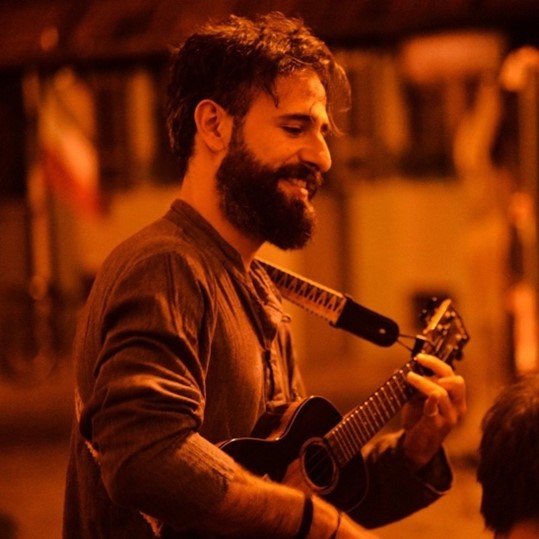Arden Hutson
With the 2024 spring semester drawing itself to a close, IUPUI’s Music and Social Change class heard from its final guest speakers this past week. Arranged and hosted graciously as ever by Professor Trevor Potts, the topic of discussion centered on music’s ability to reflect and crystalize the values of different communities, and how this phenomenon can be witnessed across continents and genres. One of our guest speakers, Emre Can Alptekin, is a Turkish PhD candidate at the University of Wroclaw in Poland, who presented the Rhythm and Revolution class with a condensed version of his dissertation entitled “Roles of Musicking among Migrants in Socio-political change.”
When beginning his presentation, Emre asked the class to “buckle up!” before helping them get to know the theoretical framework for his research. Though he spoke to our class via Zoom call, it was clear that Emre takes his work seriously, and had looked forward to sharing it with others. This research includes interviewing subjects who have cross-cultural origins – that is to say, they are often migrants with unique relationships to music due to an eclectic cultural background and series of experiences. He has also studied the history of how certain regional forms of music pass from one area to another based on shared values and political efficacy.
Though it wouldn’t be until later in his presentation, Emre shared with the class the term “Musicking”, which took residency in the title of his slide deck. Musicking, according to him, is the act of engaging and interacting with music, regardless of what form this interaction takes. What was particularly notable about his explanation was how, based on his definition, even those who may not directly perform music can engage in musicking by simply creating and maintaining spaces where music is shared. Whistling and rhythmically tapping is a form of musicking, just as the act of listening to music on the radio, selling tickets to a performance, or headlining at a music festival would be.
Despite the modern commercial music industry being fairly young, it often feels as though it can dominate the way we treat music as an artform and an activity. Making and sharing music can come across as an inherently profit-seeking endeavor, and capitalist societies incentivise people to engage with music that arbitrary metrics deem “the very best” as if it were the only kind worth consuming. The definition of musicking that Emre provided was profound in that it does not seek to commodify the act of engaging with music. Rather, it acknowledges music as a simple fact of life that comes to all people naturally just as sleeping, speaking, and breathing, with no regard for standards of perfection beyond catharsis and potential for community.
By reframing music to be seen not as a means to achieve individual stardom, but as something essential to community identity, I believe so many more new artists would feel encouraged in their creative endeavors. A song can certainly be something written to appeal commercially to as many people as possible on a world stage viewed by millions, but it can also be written to reflect and relate to the dozen people who share an apartment building, a street corner, or a favorite cafe. Both kinds of music have their place in our society and both can move the hearts and shape the minds of the audience it can reach. Emre’s research is important in that it traces the effect of music not measured in Billboard hits and streaming numbers, but in how it offers safety, community, and cultural pride to groups of people who are marginalized or displaced.
